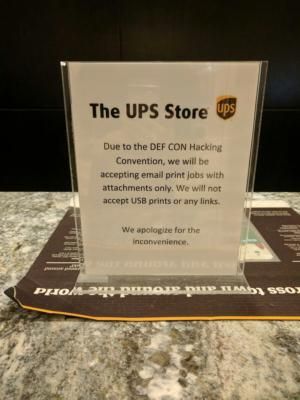The UK Prime Minister Theresa May is planning to force porn sites to adopt some means of verifying the age of visitors before serving them any porn. Any porn site not implementing such measures will be placed on a blacklist and ISPs will be forced to block them. For those people terrified of children being exposed to pornography, nothing could be more reasonable.
Indeed, porn is a worrying thing for a variety of reasons. Are the performers in a position where they can give meaningful consent? Are they victims of trafficking or their own economic situation? How does the content portray sex and - particularly - women? Is porn normalising terrible attitudes toward what is expected of women and how they ought to be treated?
These are all relevant concerns and ones we should consider when we access pornography. Evidence (and common sense) indicates that people are harmed in the making and consumption of porn and we should ask ourselves whether that price is too great. We should consider whether ethically-sourced porn is truly possible and sustainable. If not, we should probably just stop accessing it altogether until it is.
So I agree that there are serious concerns about the porn industry and about children being brought up on a diet of misogynistic pornography. Of course, the antidote to this isn't age verification (which kids will get around without serious effort) but requires changing attitudes toward what sort of thing is acceptable in porn. Probably better to allow kids (and adults) easy access to porn that treats and depicts women with fairness and respect than to hide it away. Prudishness is not the answer either.
But May has decided that age verification is the way ahead and that's what we'll have to deal with. There are several problems with this approach beginning with the fact that it is absolute bullshit.
First, it won't work. Does May seriously believe that children can't get around age verification? They've been doing it for years. I was never once even asked to prove my age in all my years of underage drinking but I'm sure I could have come up with fake ID if I needed to. It's especially easy these days.
Second, it's a disaster waiting to happen. Let's examine the two most common age verification methods.
The first is to use credit cards. Kids can't have credit cards so anyone wielding one must be an adult, right? If May believes that, she hasn't seen the dozens of stories that turn up every year about kids who have racked up enormous credit card bills ordering stuff with their parents' credit cards. This is especially true for free-to-access sites such as YouPorn. The credit card statement will show no suspicious activity so parents won't even know their card has been used.
So children will easily circumvent this method of age verification. Besides, if their parents already have accounts with porn sites, their children will likely find a way into them without any need to prove who they are.
Using credit cards for age verification is a disaster waiting to happen. Porn sites will suddenly have huge lists of their customers' credit card numbers as well as their porn viewing habits. If you go to YouPorn today, you can do so anonymously. If you go there post-credit-card-age-verification, you are vulnerable to blackmail for doing something that pretty much everyone does from time to time. Even assuming that the porn site and its employees are eminently reputable, someone is bound to hack that site sooner rather than later. Our credit cards and porn-viewing records will be stolen and available to identity thieves and blackmailers the world over.
The second method is to use two-factor authentication using a phone. When you log in, the site sends a code to your mobile phone and you type that into the site to gain access. The mobile company knows how old you are so it can decide whether to serve you pornography.
This won't work either. For one thing, parents get phones in their own names for their kids, since kids are not eligible for credit. For another, it's not very difficult to buy phones whose operators do not know how old the customer is. For yet another, how difficult would it be for kids to wait around until a parent's phone is unattended?
If anything, using phone verification is an even bigger disaster waiting to happen. Now the porn sites have your phone number instead of your credit card, which doesn't make the lives of blackmailers or identity thieves any more difficult. But now your phone company knows about your viewing habits too and it will also be hacked sooner rather than later.
And then there's a final problem. Who gets to decide which sites contain porn? Well, the government, of course. I worry about how transparent this process will be and how transparent it will remain over time. I worry a lot about mission creep: what other identification demands will this or subsequent governments make down the line?
This, I suspect, is the agenda. It probably has less to do with porn than the government claims it does. It probably has more to do with their feverish desire to track absolutely everything we do online regardless of the societal cost. This seemingly reasonable proposal about porn is the thin end of one motherfucking wide wedge.
Indeed, porn is a worrying thing for a variety of reasons. Are the performers in a position where they can give meaningful consent? Are they victims of trafficking or their own economic situation? How does the content portray sex and - particularly - women? Is porn normalising terrible attitudes toward what is expected of women and how they ought to be treated?
These are all relevant concerns and ones we should consider when we access pornography. Evidence (and common sense) indicates that people are harmed in the making and consumption of porn and we should ask ourselves whether that price is too great. We should consider whether ethically-sourced porn is truly possible and sustainable. If not, we should probably just stop accessing it altogether until it is.
So I agree that there are serious concerns about the porn industry and about children being brought up on a diet of misogynistic pornography. Of course, the antidote to this isn't age verification (which kids will get around without serious effort) but requires changing attitudes toward what sort of thing is acceptable in porn. Probably better to allow kids (and adults) easy access to porn that treats and depicts women with fairness and respect than to hide it away. Prudishness is not the answer either.
But May has decided that age verification is the way ahead and that's what we'll have to deal with. There are several problems with this approach beginning with the fact that it is absolute bullshit.
First, it won't work. Does May seriously believe that children can't get around age verification? They've been doing it for years. I was never once even asked to prove my age in all my years of underage drinking but I'm sure I could have come up with fake ID if I needed to. It's especially easy these days.
Second, it's a disaster waiting to happen. Let's examine the two most common age verification methods.
The first is to use credit cards. Kids can't have credit cards so anyone wielding one must be an adult, right? If May believes that, she hasn't seen the dozens of stories that turn up every year about kids who have racked up enormous credit card bills ordering stuff with their parents' credit cards. This is especially true for free-to-access sites such as YouPorn. The credit card statement will show no suspicious activity so parents won't even know their card has been used.
So children will easily circumvent this method of age verification. Besides, if their parents already have accounts with porn sites, their children will likely find a way into them without any need to prove who they are.
Using credit cards for age verification is a disaster waiting to happen. Porn sites will suddenly have huge lists of their customers' credit card numbers as well as their porn viewing habits. If you go to YouPorn today, you can do so anonymously. If you go there post-credit-card-age-verification, you are vulnerable to blackmail for doing something that pretty much everyone does from time to time. Even assuming that the porn site and its employees are eminently reputable, someone is bound to hack that site sooner rather than later. Our credit cards and porn-viewing records will be stolen and available to identity thieves and blackmailers the world over.
The second method is to use two-factor authentication using a phone. When you log in, the site sends a code to your mobile phone and you type that into the site to gain access. The mobile company knows how old you are so it can decide whether to serve you pornography.
This won't work either. For one thing, parents get phones in their own names for their kids, since kids are not eligible for credit. For another, it's not very difficult to buy phones whose operators do not know how old the customer is. For yet another, how difficult would it be for kids to wait around until a parent's phone is unattended?
If anything, using phone verification is an even bigger disaster waiting to happen. Now the porn sites have your phone number instead of your credit card, which doesn't make the lives of blackmailers or identity thieves any more difficult. But now your phone company knows about your viewing habits too and it will also be hacked sooner rather than later.
And then there's a final problem. Who gets to decide which sites contain porn? Well, the government, of course. I worry about how transparent this process will be and how transparent it will remain over time. I worry a lot about mission creep: what other identification demands will this or subsequent governments make down the line?
This, I suspect, is the agenda. It probably has less to do with porn than the government claims it does. It probably has more to do with their feverish desire to track absolutely everything we do online regardless of the societal cost. This seemingly reasonable proposal about porn is the thin end of one motherfucking wide wedge.












